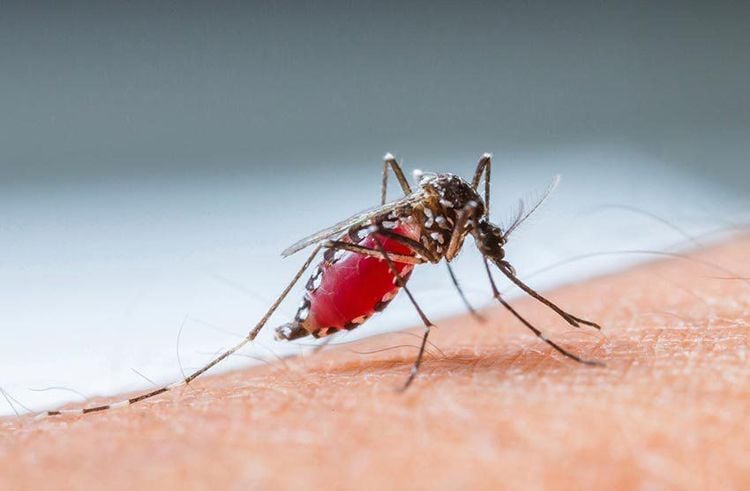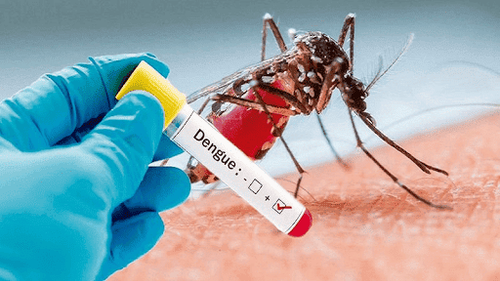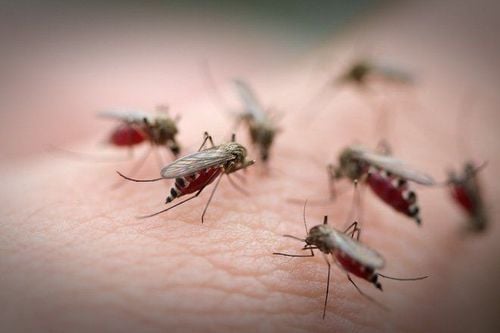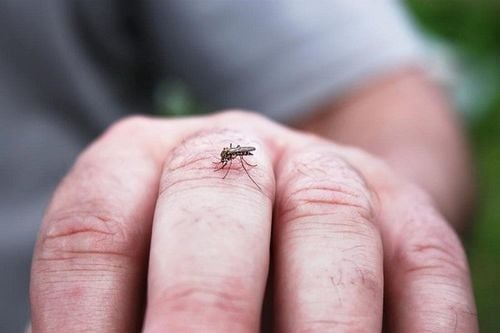As the northern region of Vietnam enters its transitional season with high humidity and frequent rain, conditions are ripe for the spread of dengue fever. Dengue fever has different stages, and each stage has its own level of risk and symptoms. So, which day is the most critical?
1. Stages of Dengue Fever
The tropical climate of Vietnam, characterized by heat, humidity, and frequent rain, provides an ideal environment for the Aedes aegypti mosquito to transmit the dengue virus. These mosquitoes are most active during early morning and late afternoon.
Incubation Period
- The incubation period of dengue fever is 3 to 14 days, starting after a mosquito bite transmits the virus.
- Symptoms are not evident during this stage, and the disease is not yet dangerous.

Acute Fever Stage
After incubation, the acute fever stage begins, lasting 2–7 days. During this time, symptoms resemble severe flu and may include:
- Sudden high fever (39–40°C).
- Fatigue, lethargy, headache, pain behind the eyes, muscle aches, sore throat, nausea, upper respiratory inflammation, and diarrhea.
Fever management:
- Paracetamol can be used to reduce fever but should not exceed 60 mg/kg of body weight per day and must be prescribed by a doctor.
- Avoid aspirin, analgin, or ibuprofen, as these can increase the risk of bleeding.
- Hydration is critical, and patients should drink oral rehydration solutions (ORS).
- Do not self-administer IV fluids to avoid the risk of anaphylactic shock.
This stage is not the most dangerous and can often be managed at home.
2. Which Day is Most Dangerous?
The most dangerous time is usually around day 4 when the fever starts to drop. Although the fever may appear to have resolved, this is the most dangerous phase due to potential complications.
- The virus weakens the immune system, leading to a significant drop in white blood cells and platelets.
- Symptoms during this phase include:
- Capillary leakage: Causes fluid accumulation in the chest (pleural effusion) and abdomen, liver pain, eye swelling, tight skin, and cold extremities.
- Shock: Restlessness, rapid heartbeat, and sudden changes in blood pressure.
- Bleeding:
- External: Nosebleeds, bleeding gums, bruises on the skin.
- Internal: Gastrointestinal bleeding (black stools), brain hemorrhages, lung bleeding, or other internal bleeding.
- In women, prolonged menstrual bleeding may occur if coinciding with their cycle.
What to Do During This Stage?
- Take the patient to a healthcare facility for blood tests to monitor platelet and white blood cell counts. Doctors may administer platelet or plasma transfusions if necessary.
- In cases of shock or organ failure, immediate transfer to a specialized hospital is required for timely intervention.
When treated appropriately, patients recover without complications. Recovery signs include:
- Improved appetite and thirst.
- Increased urination.
- Stabilized vital signs, such as normal heart rate and blood pressure.
- Gradual normalization of platelet and white blood cell counts.
3. How to Prevent Dengue Fever
Key Prevention Measures:

- Cover water containers to prevent mosquitoes from laying eggs.
- Add fish to large water storage containers to eat mosquito larvae.
- Clean and scrub water storage tanks weekly.
- Dispose of waste that collects water, such as old tires, cans, or coconut shells.
- Sleep under a mosquito net, even during daytime naps.
- Use mosquito repellents, sprays, and electric mosquito swatters.
- Conduct community-wide mosquito eradication campaigns.
- Spray insecticides in and around residential areas to prevent outbreaks.
- If someone in the household contracts dengue, ensure they sleep under a net to prevent mosquitoes from transmitting the virus to others.
- Avoid using aspirin or ibuprofen for pain relief, as these drugs can worsen bleeding complications, such as internal or gastrointestinal bleeding.
To schedule an appointment at the hospital, please get in touch with the HOTLINE or book directly HERE. Download the MyVinmec App to manage, track, and schedule appointments conveniently anytime, anywhere.














